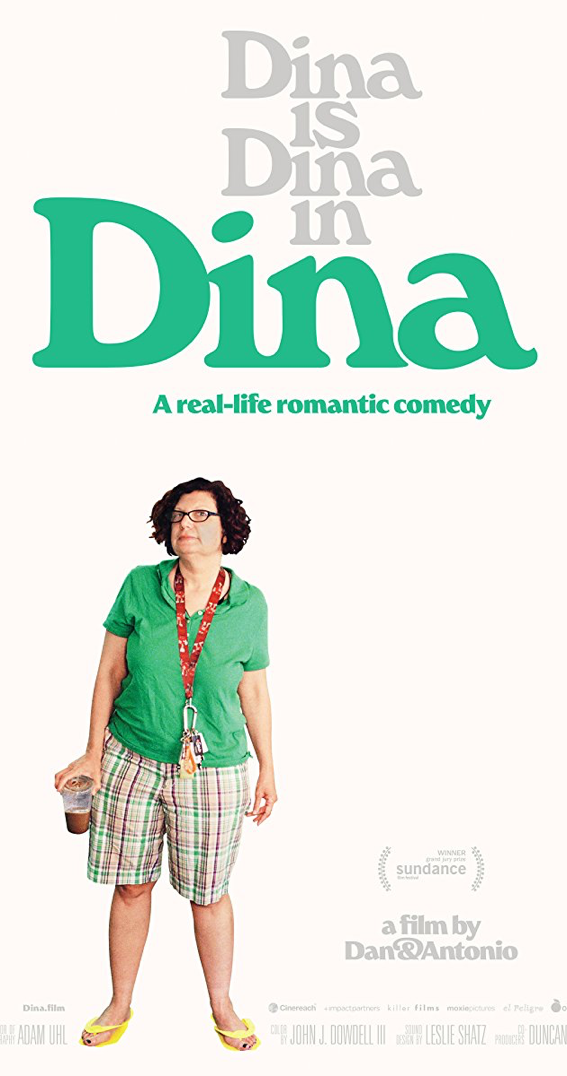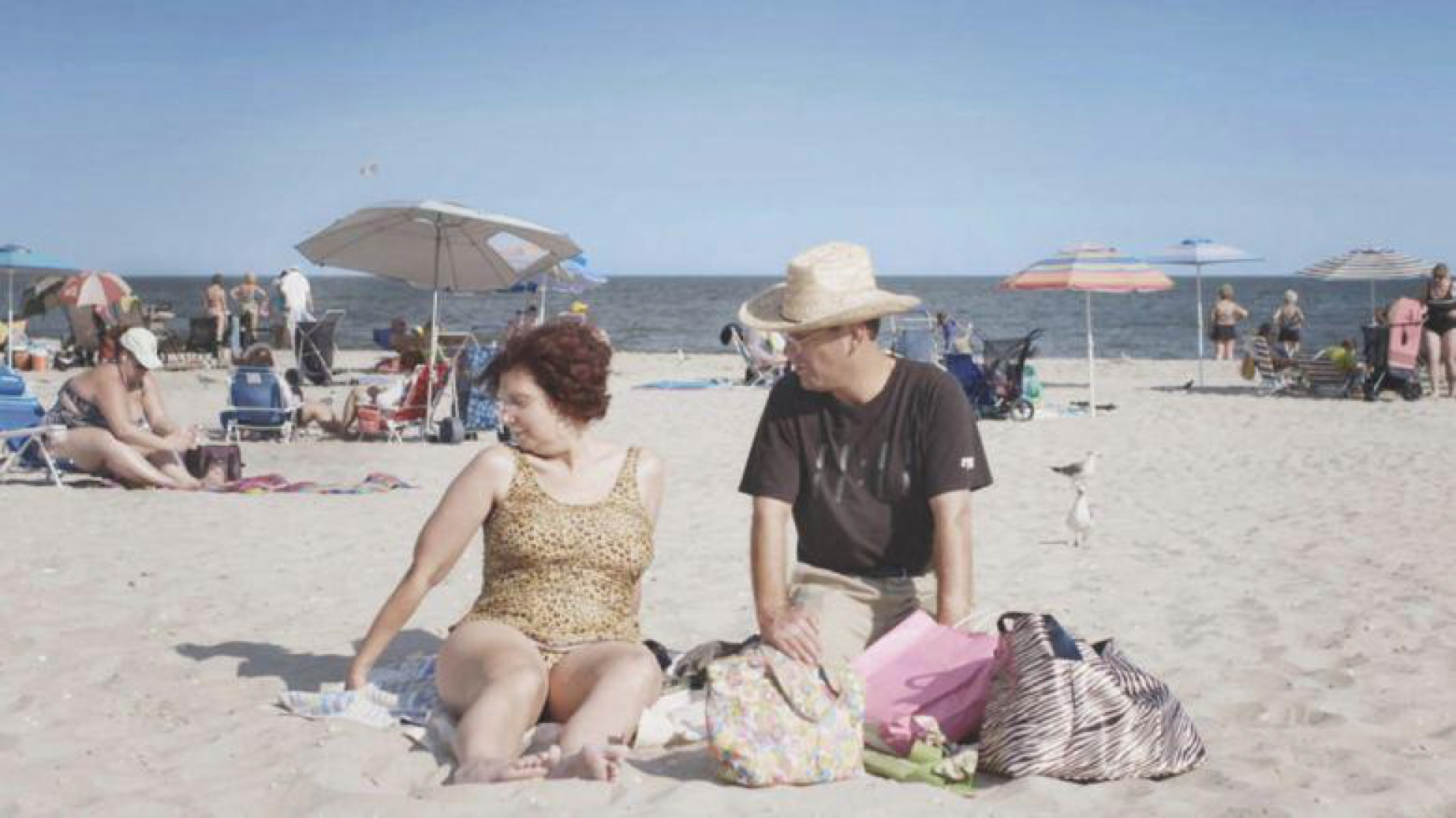DINA Review

Directors: Dan Sickles and Antonio Santini
Genre: Documentary
Year: 2017
When is it appropriate to laugh? It’s not really a question I sit around asking myself all too often, certainly not in a movie theatre. Perhaps more than any other place, the cinema has always been my safe space; a private chamber that—although filled to the brim with other people—allowed me to laugh to my heart’s content in its embracing darkness. So imagine just how perplexed I was when watching DINA, a commanding, endearing, deeply empathetic docu-portrait of neurodivergency and romance. You see, DINA is a funny film. It’s also warm, tragic, and passionate, but funny will forever be my hang up on it. There is something going on here that’s on the verge of transcendental, and it all roots back to its humor.
Dina has Aspergers, or as her mother states, “a smorgasbord of mental conditions,” but what’s perhaps of more immediate importance is that Dina’s husband of 11 years is deceased, and she survived a traumatic near-death stabbing a short while after. But things are looking up for Dina, because she has Scott, an autistic Walmart door greeter who has asked for her hand in marriage. The two might not always get along, and Dina’s sexual fortitude is certainly quite the insurmountable obstacle for her fiancé, but as the film’s coda proclaims: “wherever you are / whatever you do / I will be right here waiting for you,” kicking off our little slice of Americana.

You see, DINA is quintessentially American. Its people are ordinary, and its settings as exciting as your neighborhood strip mall. Of course, our eponymous protagonist’s life sounds anything but ordinary, but as directors Dan Sickles and Antonio Santini make clear, DINA is just another story of love among the lower middle class. Our two American heroes are peculiar in their social interactions, speaking all too bluntly when it isn’t appropriate or far too hesitantly when it would be encouraged, but what shines is the true, unfiltered love that the two exude at the high points in their relationship. DINA is sexual, aloof, but most importantly, it’s sincere. It’s a documentary shot like a romantic comedy, and though the results aren’t necessarily edge-of-your-seat gripping, it’s wonderfully charming.
Which is why DINA’s humor is such a complex algorithm to reconcile. It’s an inarguable fact that DINA is laugh-out-loud funny at times. From brilliantly timed edits to wonderful musical juxtapositions, DINA knows exactly how to live and breathe in its space. Nothing registers as performative here, partly because both character’s identities make it a little easier for the camera’s to just disappear into the scenery. So on one hand, it’s rather brilliant what Sickles and Santini have done. I laugh because DINA is funny, but why its funny is a question I struggle to find an easy answer to.
https://www.youtube.com/watch?v=GPpHLK4SHt8
But DINA made me aware of this killer track so that gives it an instant recommend
Am I laughing because of who our main characters are? I’m certainly not laughing with them. So what does this say about Sickles and Santini? And, in turn, what does this say about myself? I love the moral queasiness of this ethical deconstruction, but I fail to see whether DINA has a means to an end. I suppose a case can be made that I have spent enough time with Dina and Scott to love them as the (extra)-ordinary people they are, but something still doesn’t sit right with me. There is an undeniable sense of exhibitionism at DINA’s formal core. Although the people themselves are never performing, Sickles and Santini want me to look at them. Where this stands morally is in the eye of the beholder, but for what it’s worth, DINA is an engaging—if overlong—documentary on the tribulations of love.
Verdict: Recommend



